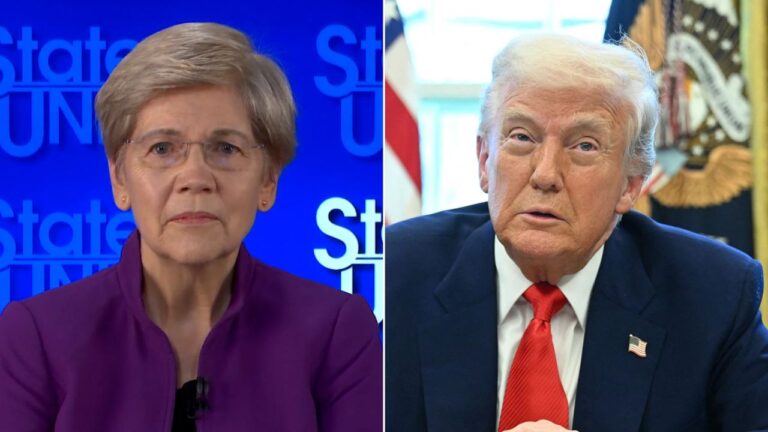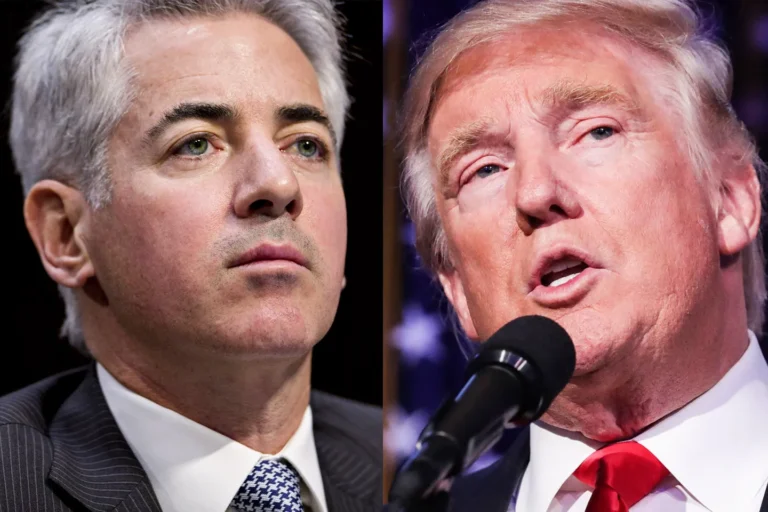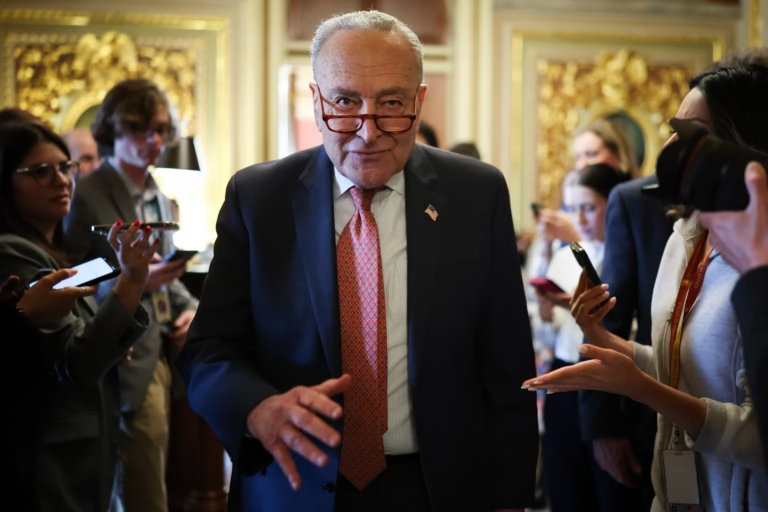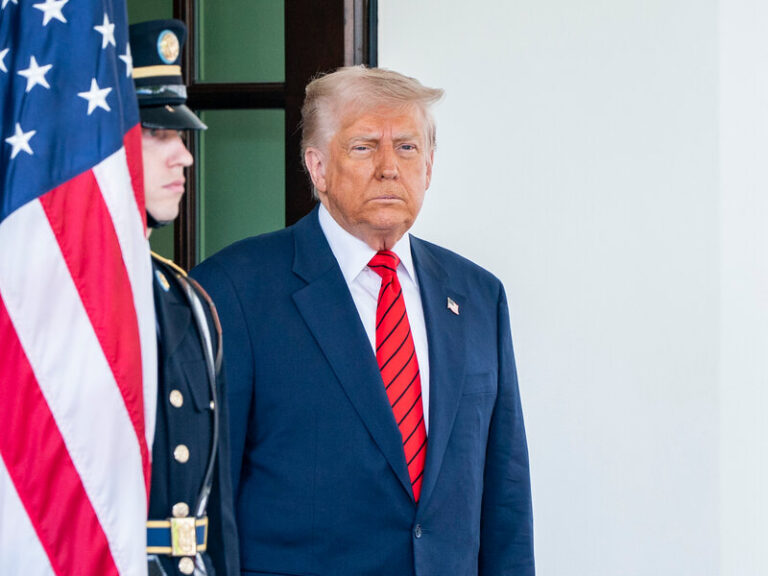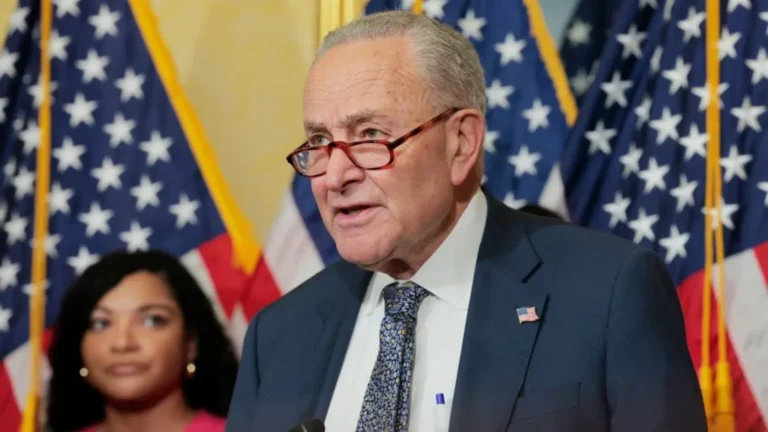Former FBI Director Christopher Wray Reportedly Under Expanding Federal Investigation
rmer FBI Director Christopher Wray is now reportedly at the center of a widening federal investigation into allegations of obstruction of justice, false statements to Congress, and mishandling of classified information.
The developments, revealed in new reporting by The Wall Street Journal and CNN, suggest that federal prosecutors are examining Wray’s conduct during the final years of the Biden administration, particularly regarding politically sensitive investigations that may have been mismanaged or compromised.
The revelations mark a stunning reversal for a man who once led the nation’s most powerful law enforcement agency. Wray, who served as FBI Director from 2017 to 2024, is now facing the very kind of scrutiny his agency once directed toward others.
The inquiry has already resulted in subpoenas being issued to several former senior FBI officials, according to sources with direct knowledge of the case. The investigation is reportedly being led by the U.S. Attorney’s Office for the Western District of Virginia and involves multiple federal prosecutors with national security clearance.
The probe focuses on Wray’s leadership during a period marked by widespread political turmoil and questions about the FBI’s integrity. Prosecutors are said to be looking into whether Wray or top aides under his direction concealed or destroyed evidence connected to Special Counsel John Durham’s investigation into the origins of the Trump–Russia probe.
According to The Wall Street Journal, federal investigators are particularly interested in whether documents relevant to the Durham inquiry were intentionally destroyed in the FBI’s headquarters.
Witnesses reportedly told investigators that during Wray’s tenure, bureau staff on the seventh floor — home to FBI leadership offices — used “burn bags” to dispose of materials that may have included classified evidence. These bags are typically used for the secure destruction of sensitive documents, but their alleged misuse could constitute obstruction of justice if investigators determine they were used to conceal evidence.

CNN’s reporting corroborates these claims, citing interviews with current and former FBI employees who worked in proximity to Wray between 2020 and 2024. Some of those questioned reportedly described “unusual” document handling practices that coincided with oversight requests from congressional committees investigating FBI conduct.
The inquiry into Wray’s possible obstruction comes amid an internal reckoning within the FBI under the leadership of Director Kash Patel, who succeeded Wray earlier this year.
Patel has reportedly initiated a full audit of all case files and classified material management protocols, emphasizing that “no one, not even the Director, is above the law.
”The Durham investigation, which began in 2019, was tasked with uncovering potential misconduct in the FBI’s handling of the Trump–Russia investigation, also known as Crossfire Hurricane.
Although Durham’s final report was critical of the FBI’s procedures, it stopped short of charging senior leadership. However, according to sources familiar with the current probe, prosecutors are now revisiting whether evidence relevant to Durham’s findings was intentionally withheld or destroyed under Wray’s direction.
Former CIA Director John Brennan, who also played a major role in the intelligence community’s handling of the Russia probe, is reportedly under separate scrutiny as part of the same broader inquiry.
Prosecutors are said to be examining communications between Wray, Brennan, and other intelligence officials to determine whether coordination took place that could have influenced investigative outcomes or testimony provided to Congress.
Wray’s alleged false statements to Congress are another major focus of the investigation. In testimony delivered in 2020 and 2021, Wray assured lawmakers that the FBI had found “no coordinated national effort” of election interference or widespread voter fraud during the 2020 election. However, a recently declassified FBI intelligence report — turned over to Congress by Director Patel — appears to contradict those claims.

The report, which was classified at the time of Wray’s testimony, detailed evidence that the Chinese government had mass-produced counterfeit U.S. driver’s licenses ahead of the election.These fake IDs, according to the report, were allegedly intended to facilitate mail-in ballot fraud benefiting then-candidate Joe Biden. If confirmed, this revelation would suggest that Wray misled lawmakers, whether intentionally or through negligence.“The FBI knew more than it admitted publicly, and Wray’s statements were, at best, misleading,” one congressional staffer familiar with the report said. “At worst, they were outright falsehoods designed to protect political interests.
”Another controversy under investigation involves Wray’s handling of the so-called “Richmond product” — a 2023 FBI intelligence memorandum warning that “radical-traditionalist Catholics” posed potential domestic terrorism threats.
During a 2023 congressional hearing, Wray insisted that the memo was limited to a single field office and was immediately retracted upon discovery. However, subsequent oversight inquiries uncovered that the memo had, in fact, been circulated to over 1,000 FBI personnel and coordinated with at least two additional field offices.
A draft version for external release, reportedly prepared under Wray’s watch, repeated unfounded claims linking Catholic traditionalism to violent extremism. Senator Chuck Grassley (R-IA), who exposed the memo’s existence, said Wray’s testimony about the document was “inaccurate and incomplete.” Further reviews revealed that the FBI had produced “more than a dozen” related internal products reflecting similar assumptions.
“The FBI under Wray was running an ideological agenda masquerading as intelligence,” Grassley said. “That’s not law enforcement — that’s political surveillance.
”The Oversight Project, a watchdog group, has formally alleged that Wray’s testimony on the memo amounted to obstruction of Congress and perjury under federal law.
Since assuming leadership, FBI Director Kash Patel has initiated an aggressive overhaul of the bureau’s internal culture, dismantling what he calls “a diseased temple three decades in the making.
”Patel has dismissed several senior officials linked to political scandals, abolished the Washington Field Office’s corruption unit known as “CR-15,” and severed ties with the Anti-Defamation League (ADL) and Southern Poverty Law Center (SPLC), both of which had been involved in advising on domestic extremism assessments.
“These groups became partisan smear machines, not partners in justice,” Patel said in an interview with Fox News. “The FBI is returning to its constitutional roots — investigating crimes, not policing thought.
”Patel’s reforms have drawn both praise and criticism. Supporters argue that he is restoring transparency and accountability, while detractors claim he is politicizing the bureau in the opposite direction.
Regardless, Patel has made clear that the Wray investigation represents a turning point for federal law enforcement. “We’re going to follow the evidence wherever it leads — even if it leads to the former Director’s desk,” Patel said.The new FBI leadership is also coordinating with the Treasury Department to trace financial networks allegedly connected to extremist groups such as Antifa and other violent political movements.
Patel has described this effort as part of a broader campaign to dismantle the infrastructure of political violence in America. “Money never lies,” he said. “We’re following every dollar, every account, and every shell company used to fund lawlessness.
”Officials have confirmed that this joint task force has already identified numerous accounts linked to domestic and foreign entities suspected of funneling money to extremist causes. While unrelated to Wray’s alleged misconduct, the initiative highlights the contrasting approaches between the current and former FBI administrations.

If the allegations against Wray are substantiated, the former FBI Director could face serious criminal charges, including obstruction of justice, making false statements, destruction of federal records, and perjury.
Convictions on these counts carry potential prison sentences ranging from five to twenty years per charge. Legal experts say the case could have historic implications, representing one of the rare instances in which a former FBI Director is held accountable for alleged abuses of power.“The stakes are enormous,” said former federal prosecutor Andrew McCarthy.
“If Wray knowingly concealed or destroyed evidence, that’s obstruction. If he misled Congress, that’s perjury.
And if he misused classified material, that’s a national security breach. It doesn’t get more serious than that.”Politically, the investigation deepens the already growing divide over the legacy of the Biden-era intelligence community.
Supporters of Wray argue that he sought to maintain institutional neutrality amid political chaos, while critics contend that his tenure epitomized the FBI’s decline into partisanship and secrecy.Republican lawmakers have already signaled plans to expand oversight hearings, demanding full access to the DOJ’s findings. Democrats, meanwhile, have largely remained silent, awaiting the official outcome of the investigation.
As the inquiry unfolds, the FBI faces a pivotal moment. Under Patel’s leadership, the bureau is attempting to rebuild trust with the public after years of controversy, from the Russia probe to election integrity disputes.Whether the investigation into Wray leads to formal charges or not, it underscores the urgency of restoring accountability and transparency within one of the most powerful institutions in American government.

Neither Wray nor his attorneys have commented on the ongoing investigation. The Justice Department and the FBI have also declined to issue public statements, citing the ongoing nature of the case.But one thing is clear: for the first time in decades, the guardians of federal law enforcement are being forced to confront their own shadows — and the outcome could reshape the future of American justice.


